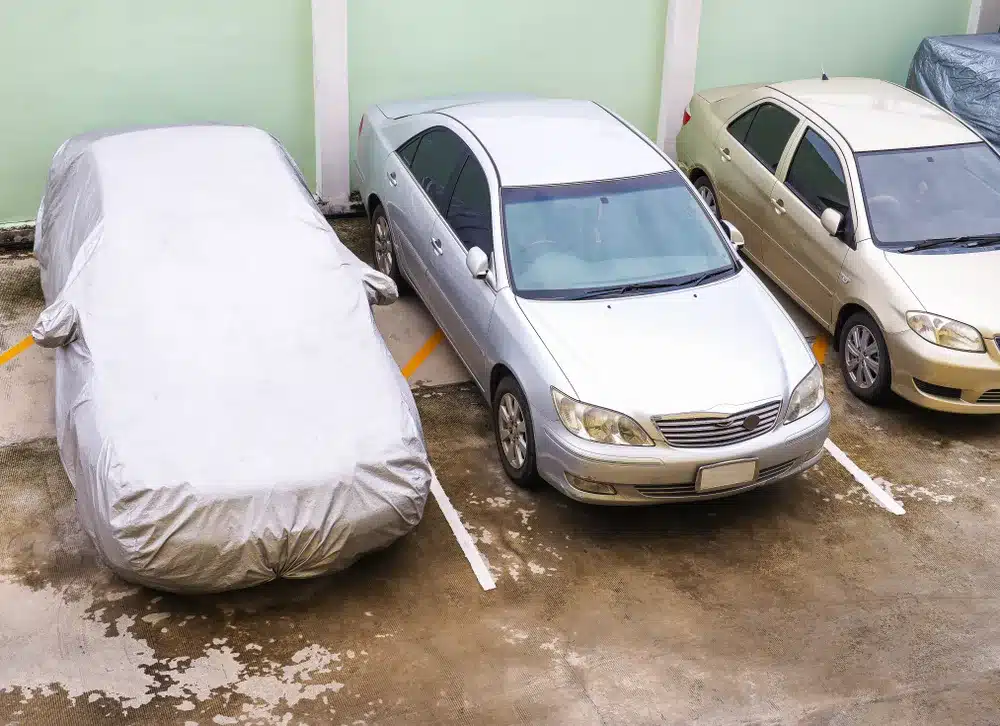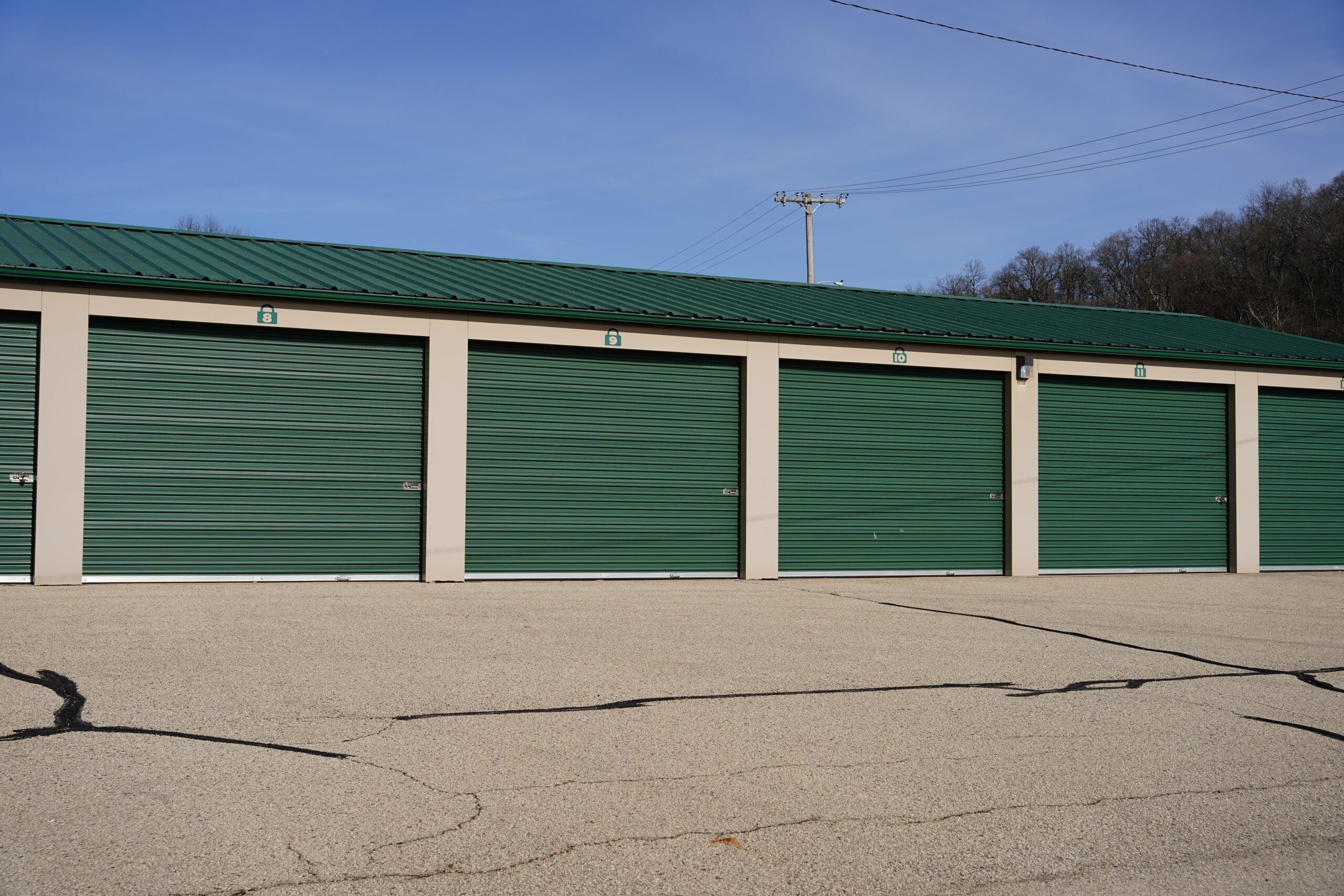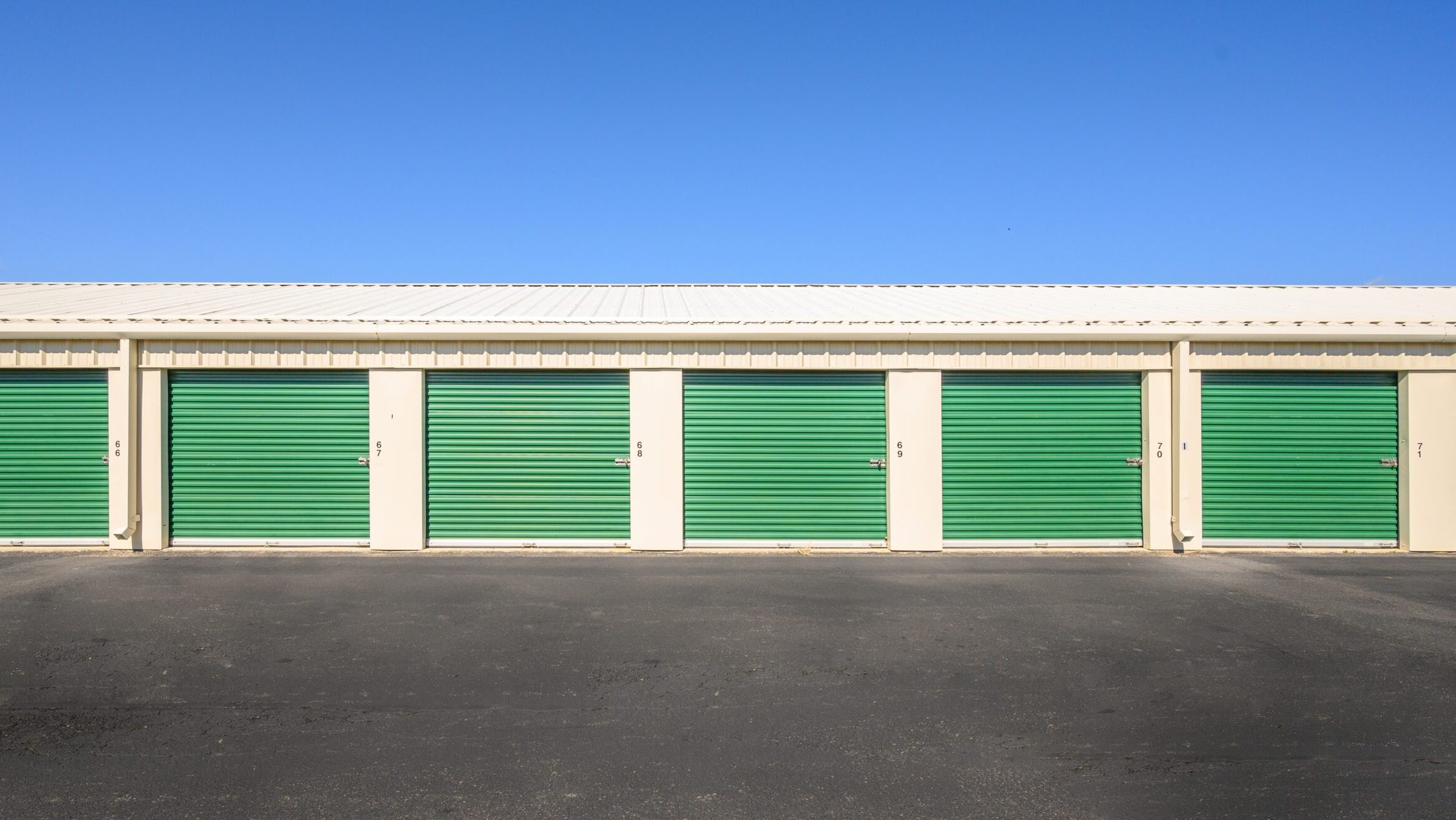Whether you don’t have a garage or you’re using your garage for other DIY activities, car storage is an easy solution.
Or maybe you want to protect a car that you don’t use on a daily basis, and are looking for affordable but safe classic car storage.
But just how much does car storage cost? What are the different vehicle storage types, and how do the variables influence vehicle storage prices?
The cost of car storage varies, as you are about to find out, depending on the type of storage and the location of the storage facility.
An outdoor parking space exposed to the elements will be cheaper than an outdoor vehicle storage space under a car cover. And a private indoor storage space will be more expensive than a shared indoor car storage facility.
Storage amenities like entry gates with keypad-controlled access and other extra storage security features, drive-up/pull-through access, and climate control.
And long-term vehicle storage duration typically comes at a lower monthly price than short-term vehicle storage fees.
This expert guide will compare the costs of the various vehicle storage options. We’ll also help you find out exactly what car storage type you need.
Finally, we’ll reveal how to use our Storage.com Search Tool to find the ideal vehicle storage unit near you that has the exact amenities you need for your unique storage situation.
Average Cost of Vehicle Storage
The average cost of a vehicle storage unit or parking spot varies by the vehicle storage unit’s size. Your typical car can fit in a 10×20 self-storage unit, which costs an average rental price of $139.59 per month.
Trucks and smaller RVs can fit in a 10×30 unit, while 40-foot and up units can accommodate larger vehicles. Below are average prices for standard vehicle storage sizes:
Vehicle storage prices can significantly differ depending on where you live, the type of storage chosen (indoor, outdoor, covered), and the size of your car. These prices are also influenced by the availability of specific unit sizes in your area and at the storage facility in question.
Car storage cost by storage type
Indoor car storage is the most expensive form of car storage, due to the extra protection it offers from weather and the added security – climate-controlled units cost even more.
Outdoor vehicle storage is typically the most affordable option, advisable for short-term storage or vehicles that can withstand exposure to the elements.
Covered storage falls in between indoor and outdoor storage in price. You’re compromising — you still get some protection from the sun and rain, though not the dust, debris, and wind. That said, covered storage doesn’t come with the costly price tag of a fully enclosed space.
City-Specific Comparisons
Car storage prices vary significantly from city to city and, at times, even by region, not to mention the time of the year. Major cities with a small supply of space but a high demand stand out from the national averages, with higher costs for car storage than suburban units.
So, how much does it cost to store a car in New York City compared to Los Angeles or Chicago?
Below is the average price in 2024 to rent a 10×20 unit in these three major cities:
- New York: $353.46
- Los Angeles: $302.30
- Chicago: $143.29
Regional variations
Major cities aside, what influences vehicle storage costs by region?
- In colder regions, indoor car storage may be more expensive during winter months due to higher demand as people look to protect their vehicles from snow and ice. If you live in a region with harsh winters, you’ll definitely want to winterize your vehicle for long-term storage.
- In coastal or high-humidity areas, there is greater demand for climate-controlled units throughout the year, especially during summer, and climate control comes with a higher price.
- Most homes in the West and South don’t have basements, so people often use their garages for storing odds and ends. This means they have to find another spot to store their less frequently used car. The high demand can drive up the price of car storage in their area.
Factors Affecting Storage Costs
Several things affect how much you’ll end up paying for car storage. These factors may include, but are not limited to, location of the facility, size of the unit, and the amenities available.
1. Location
Facilities in busy urban areas often charge more than those in suburbs or rural locations. Higher property values and taxes in the area can also push car storage prices up.
Paying for a vehicle storage facility closer to your home or work is no doubt convenient, but it could come with a higher price tag.
If you’re willing to drive a little further when looking to store your vehicle for a long-term storage period, you might save a few bucks.
2. Storage unit size
Standard sizes for car storage range from 10×15 feet for smaller cars to 10×20 or 10×30 feet for bigger vehicles like SUVs or trucks. The larger the car, the more space it needs, which means a higher cost.
3. Amenities and security features
Some vehicle storage facilities offer added security features, like surveillance cameras, gated access, on-site managers, and individual unit alarms.
These facilities often charge a premium price for these added features. Climate-controlled units, which protect against humidity and temperature swings, can also raise the cost.
Types of Vehicle Storage
Different types of car storage offer different levels of protection and convenience at various prices.
To help you decide which is the ideal option for your vehicle storage needs, let’s examine the benefits of indoor, outdoor, and covered vehicle storage.
Indoor car storage
| Benefits | Best protection from weather, theft, and damage. Ideal for long-term storage or cars that need extra care, like classic or luxury vehicles. |
| Features | Often comes with added security, such as surveillance cameras, alarms, and restricted access. Climate control is also a common feature of indoor vehicle storage, preventing damage from humidity and temperature changes. |
| Accessibility | Safe, enclosed environment similar to a personal garage, often with easy drive-up storage access. |
| Cost | Generally, indoor car storage is the most expensive option due to the high level of protection and additional features. |
Outdoor car storage
| Pros | The most affordable storage option. Suitable for short-term needs or cars that can handle exposure to the elements. |
| Cons | Offers minimal protection from weather, theft, and vandalism. Cars stored outdoors may experience damage from the sun, rain, snow, or critters. |
| Accessibility | Often provides 24-hour access, making it easy to retrieve your car when needed. |
| Cost | Typically, the lowest cost is due to the lack of enclosure and fewer amenities. |
Covered car storage
| Overview | A middle-ground option that provides a roof to protect the car from direct sunlight, some rain, and snow. It offers more protection than outdoor storage but isn’t fully enclosed like indoor storage. |
| Features | Generally includes some level of security, such as gates or perimeter fencing, but may not offer the same advanced features as indoor storage. |
| Accessibility | Comes with drive-up access, making it easy to park and retrieve your vehicle. |
| Cost | Priced between indoor and outdoor vehicle storage, it balances protection and affordability. |
Cost of Car Storage Insurance
Car storage insurance covers damages that happen while the car is parked and isn’t being driven, which is why car storage insurance is often called “parked car insurance.”
If you have a full coverage plan, it likely includes car storage insurance or parked car insurance, and you won’t have to. That said, if you plan to put a vehicle into storage for a long time, you likely don’t want full coverage on a vehicle you aren’t planning on driving anytime soon.
In that case, you can get comprehensive coverage that includes car storage insurance or parked car insurance.
The average cost of comprehensive insurance is between $21 and $115 per month, depending on the insurance carrier, region, and vehicle make/year/model.
- In all states except two, car storage insurance or parked car insurance is included in the comprehensive coverage umbrella term.
- We suggest you contact your insurance provider and ask if car storage insurance is included before storing a vehicle.
Car storage insurance/parked car insurance, or comprehensive coverage, is much cheaper than full coverage car insurance.
That said, keep in mind that if an accident happens while you’re driving a car that only has comprehensive or car storage insurance coverage, the damages your vehicle sustains or causes may not be covered.
How Storage.com Can Help You Find Affordable Vehicle Storage Costs
Now that you understand the ins and outs of the cost of car storage, you know that it often depends on the type of storage and the features and amenities. Finding the right car storage solution doesn’t have to break the bank. Let’s review a few tips for finding a good car storage deal. Then, we’ll talk about how Storage.com can help.
1. Search for discounts
Many storage facilities offer promotions like the first month free, discounted rates for signing a long-term contract, or seasonal deals. Check their websites or call to ask about any current offers.
Don’t be afraid to ask for discounts, especially if you’re a senior, a student, or a member of the military. Some facilities also offer referral bonuses or discounts if a current customer refers you, so ask around the neighborhood for recommendations.
Use comparison websites to find affordable car storage options near you. These sites often highlight discounts and deals available at local facilities.
2. Evaluate facility amenities
Consider which security features are important for you. Facilities with gated access, surveillance cameras, on-site managers, and individual alarms might cost more but offer better protection.
Think about whether climate control is necessary for your car. If you’re storing a vehicle in a region with extreme temperatures or high humidity, climate control can prevent damage, but it will increase the car storage costs.
If you use your car frequently, ensure you have access to facilities with 24-hour availability. However, remember that extended access hours can sometimes come with higher fees.
Decide which amenities are worth paying extra for. Possible extras to consider include extra-wide spaces with easy parking or drive-up access.
If you plan on wrenching on the car while it’s in storage, be sure the facility allows you to work in the unit. Pro tip: leave a little extra room for shelves full of motor oil, fuel stabilizer, and your mechanic’s tools so that you can conduct routine vehicle maintenance.
3. Consider location and accessibility
If you need to access your car frequently, choosing a facility closer to home or work will be worth the extra money.
If you plan to store your car long-term and won’t need to access it frequently, consider a location outside urban areas. These are often cheaper due to lower land costs and less demand.
Remember to factor in the cost of traveling to and from the car storage location. Sometimes, a slightly more expensive facility closer to you might save money in fuel and time over the long run.
By now, you should have a pretty good idea of the type of car storage space you need and which amenities you can live without. But how do you find the exact combination of the storage type and features you’re looking for in your area?
Storage.com is here to help.
Just punch your zip code into our handy Storage.com search tool, and we’ll help you browse and compare vehicle storage units using amenity filters that isolate the storage facilities in your area that have units available with all your non-negotiable storage features.
Whether you’re a car collector, a mechanic, or just need a place to keep an extra vehicle, we’ll filter through the thousands of local storage facilities for you, making it easy to find the storage unit that best fits your needs.
Honing your car storage unit search results based on size, location, and features ensures you’ll have enough space to hold your particular vehicle.
All you have to do is choose the vehicle storage facility you want and your move-in date, and we’ll take care of the rest!






